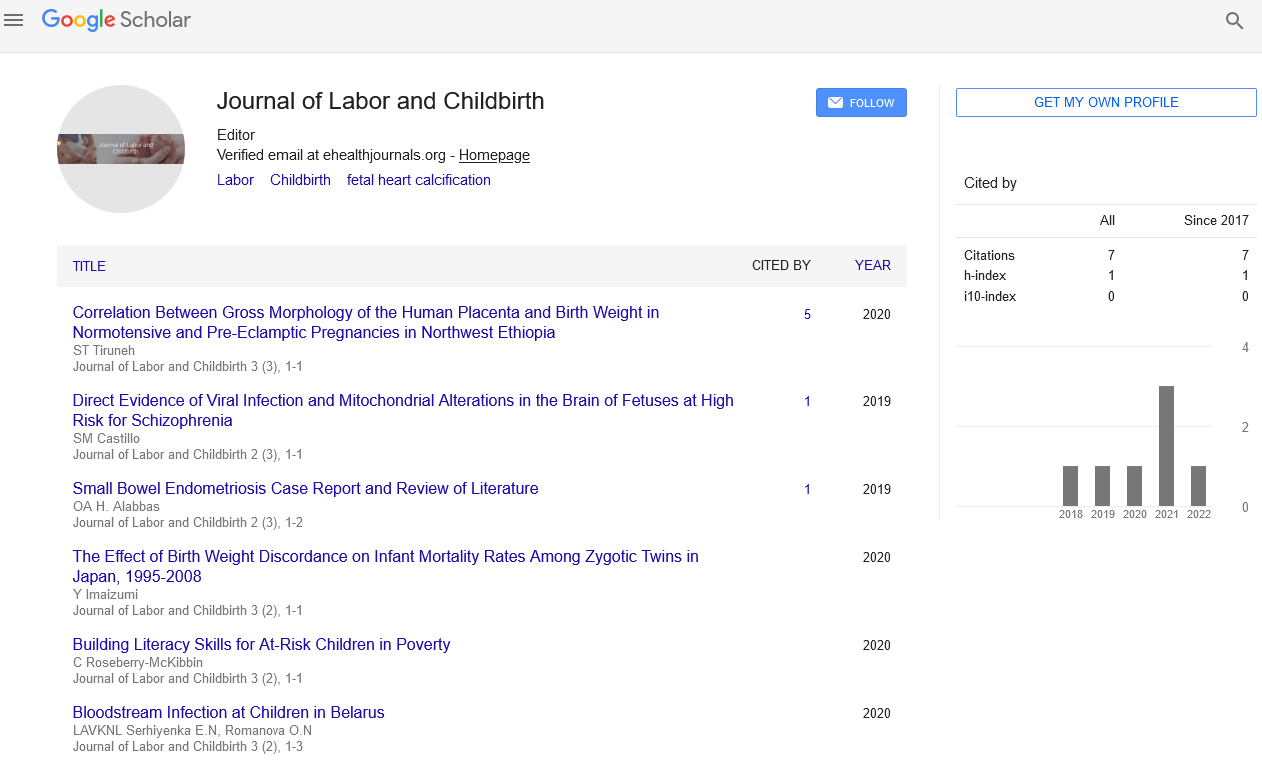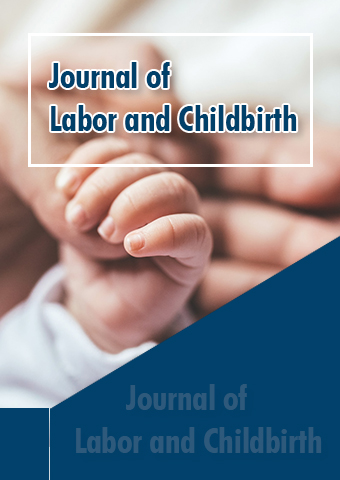Perspective - Journal of Labor and Childbirth (2024) Volume 7, Issue 4
Breastfeeding: The Essential Guide for New Mothers
- Corresponding Author:
- Emiko Usui
Department of Gynecology,
Liaz University,
Azul,
Argentina
E-mail: usui@ier.ac.jp
Received: 02-Jul-2024, Manuscript No. jlcb-24-140554; Editor assigned: 05-Jul-2024, PreQC No. jlcb-24-140554 (PQ); Reviewed: 19-Jul-2024, QC No. jlcb-24-140554; Revised: 26-Jul-2024, Manuscript No. jlcb-24-140554 (R); Published: 23-Aug-2024, DOI: 10.37532/ jlcb.2024.7(4).243-244
Introduction
Breastfeeding is a natural and fundamental practice that offers countless benefits to both mothers and their infants. It is recommended by Health Organizations worldwide, including the World Health Organization (WHO) and the American Academy of Pediatrics (AAP), as the optimal way to nourish newborns. This article will delve into the importance of breastfeeding, its benefits for both mother and baby, common challenges encountered and practical tips for successful breastfeeding.
Description
The importance of breastfeeding
Breastfeeding is more than just a method of feeding; it is a vital component of infant development and maternal health. The World Health Organization (WHO) and the American Academy of Pediatrics (AAP) recommend exclusive breastfeeding for the first six months of a baby’s life, followed by continued breastfeeding alongside complementary foods for up to two years or beyond. This recommendation is based on extensive research highlighting the myriad benefits of breastfeeding.
Benefits for the baby
Optimal nutrition: Breast milk is uniquely tailored to meet the nutritional needs of infants. It contains the perfect balance of proteins, fats, carbohydrates, vitamins and minerals. Additionally, the composition of breast milk changes over time to meet the evolving needs of the growing baby.
Colostrum, the first milk produced after birth, is rich in antibodies and essential nutrients that help build the baby’s immune system.
Immune protection: Breast milk is packed with antibodies and immune-boosting factors that help protect babies from infections and illnesses. Studies have shown that breastfed babies have a lower risk of respiratory infections, gastrointestinal infections, ear infections and Sudden Infant Death Syndrome (SIDS). The antibodies in breast milk also help develop the baby’s immune system, providing long-term health benefits.
Cognitive development: Breastfeeding has been linked to improved cognitive development in children. Research suggests that breastfed babies tend to have higher IQ scores and better academic performance later in life. The unique combination of fatty acids in breast milk, particularly DHA (docosahexaenoic acid), plays a crucial role in brain development.
Emotional bonding: Breastfeeding fosters a strong emotional bond between mother and baby. The skin-to-skin contact, eye contact and physical closeness during breastfeeding create a sense of security and comfort for the baby. This bonding experience promotes emotional well-being and can have lasting positive effects on the child’s emotional development.
Benefits for the mother
Faster recovery post-delivery: Breastfeeding promotes faster postpartum recovery for mothers.
The act of breastfeeding stimulates the release of oxytocin, a hormone that helps the uterus contract and return to its pre-pregnancy size. This can reduce postpartum bleeding and aid in the expulsion of the placenta. Additionally, breastfeeding can help mothers return to their pre-pregnancy weight more quickly, as it burns extra calories.
Reduced risk of chronic diseases: Breastfeeding has been associated with a reduced risk of certain chronic diseases for mothers. Studies have shown that breastfeeding lowers the risk of breast and ovarian cancers, type 2 diabetes and cardiovascular diseases. The longer a mother breastfeeds, the greater the protective effect against these conditions.
Emotional well-being: Breastfeeding can have positive effects on a mother’s emotional wellbeing. The release of oxytocin during breastfeeding promotes feelings of relaxation and bonding with the baby. Additionally, the act of breastfeeding can help reduce stress and lower the risk of postpartum depression.
Cost-effective: Breastfeeding is a cost-effective way to feed a baby. It eliminates the need to purchase formula, bottles and other feeding supplies. Additionally, breastfed babies are less likely to require medical treatment for infections and illnesses, leading to lower healthcare costs.
Common challenges and solutions
While breastfeeding is a natural process, it is not always easy. Many mothers face challenges, especially in the early days and weeks. Here are some common issues and practical solutions:
Latching difficulties: Some babies may have trouble latching onto the breast properly, which can lead to pain for the mother and inadequate milk intake for the baby. To address this, mothers can seek guidance from a lactation consultant who can provide hands-on assistance and tips for achieving a proper latch.
Low milk supply: Concerns about low milk supply are common among breastfeeding mothers. To increase milk production, mothers should breastfeed frequently, ensure the baby is latching properly and stay hydrated. Foods and herbs such as oats, fenugreek and fennel are also believed to help boost milk supply.
Engorgement: Breast engorgement occurs when the breasts become overly full of milk, leading to swelling and discomfort. This can be managed by breastfeeding or pumping frequently, applying warm compresses before feeding and cold compresses after feeding to reduce swelling.
Conclusion
Breastfeeding is a valuable and rewarding experience that offers numerous benefits for both mother and baby. While it can come with challenges, the advantages far outweigh the difficulties. By understanding the importance of breastfeeding, being aware of potential issues and knowing practical tips for success, new mothers can provide their babies with the best possible start in life. Remember, every mother’s breastfeeding journey is unique and seeking support from healthcare providers, lactation consultants and support groups can make a significant difference in overcoming challenges and achieving a fulfilling breastfeeding experience.

